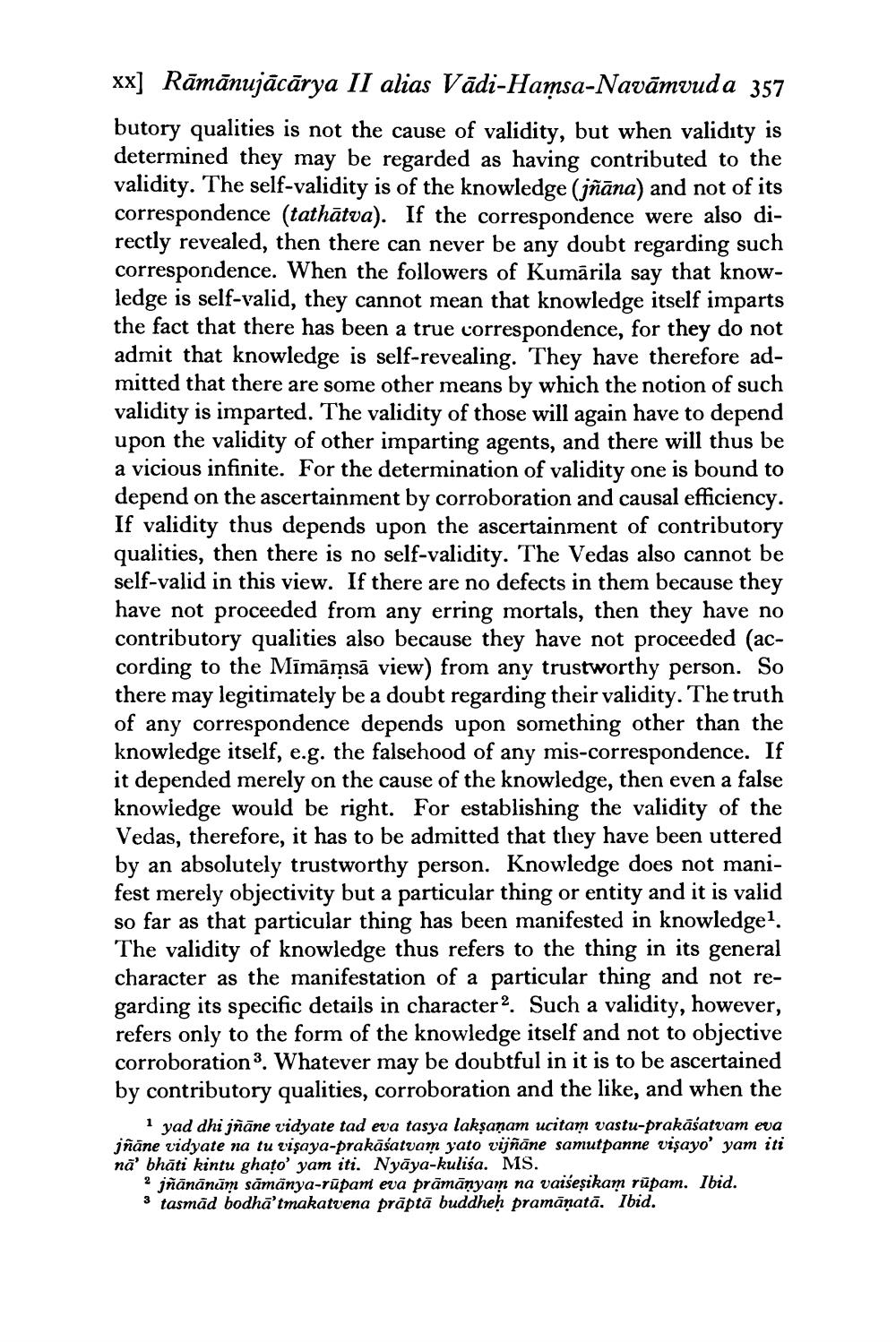________________
xx] Rāmānujācārya II alias Vādi-Hamsa-Navāmvuda 357
butory qualities is not the cause of validity, but when validity is determined they may be regarded as having contributed to the validity. The self-validity is of the knowledge (jñāna) and not of its correspondence (tathātva). If the correspondence were also directly revealed, then there can never be any doubt regarding such correspondence. When the followers of Kumārila say that knowledge is self-valid, they cannot mean that knowledge itself imparts the fact that there has been a true correspondence, for they do not admit that knowledge is self-revealing. They have therefore admitted that there are some other means by which the notion of such validity is imparted. The validity of those will again have to depend upon the validity of other imparting agents, and there will thus be a vicious infinite. For the determination of validity one is bound to depend on the ascertainment by corroboration and causal efficiency. If validity thus depends upon the ascertainment of contributory qualities, then there is no self-validity. The Vedas also cannot be self-valid in this view. If there are no defects in them because they have not proceeded from any erring mortals, then they have no contributory qualities also because they have not proceeded (according to the Mīmāmsā view) from any trustworthy person. So there may legitimately be a doubt regarding their validity. The truth of any correspondence depends upon something other than the knowledge itself, e.g. the falsehood of any mis-correspondence. If it depended merely on the cause of the knowledge, then even a false knowledge would be right. For establishing the validity of the Vedas, therefore, it has to be admitted that they have been uttered by an absolutely trustworthy person. Knowledge does not manifest merely objectivity but a particular thing or entity and it is valid so far as that particular thing has been manifested in knowledge1. The validity of knowledge thus refers to the thing in its general character as the manifestation of a particular thing and not regarding its specific details in character2. Such a validity, however, refers only to the form of the knowledge itself and not to objective corroboration3. Whatever may be doubtful in it is to be ascertained by contributory qualities, corroboration and the like, and when the
1 yad dhi jñāne vidyate tad eva tasya lakṣaṇam ucitam vastu-prakāśatvam eva jñāne vidyate na tu viṣaya-prakāśatvam yato vijñāne samutpanne vișayo' yam iti na' bhāti kintu ghato' yam iti. Nyaya-kuliśa. MS.
2 jñānānām sāmanya-rupam eva pramanyam na vaiseṣikam rūpam. Ibid. 3 tasmad bodha'tmakatvena prāptā buddheḥ pramāṇatā. Ibid.




